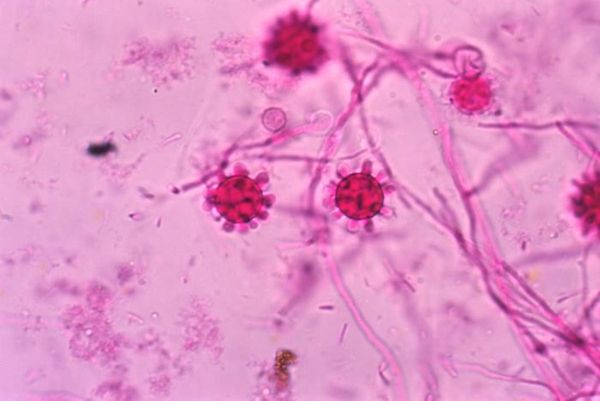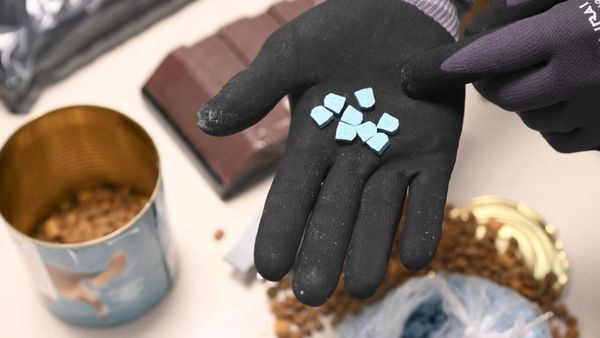An international shortage of fertiliser is crippling crop farmers around the world.
As one of the biggest exporters of phosphate fertiliser, Russia has caused major disruptions to the global supply chain with its invasion of the Ukraine.
The impact is being felt globally. In Brazil, the coffee industry is facing a mounting crisis as shortages of its Russian-sourced fertiliser stifle harvests.
Overall, coffee production is expected to fall by more than 15 per cent this year.
As countries become desperate to establish less volatile trade relations, Australian miners say "the time is now" for the country to begin exporting its rich phosphate resources.
They say the north-west Queensland region of the Georgina Basin is a phosphate honey pot waiting to be tapped.
Phosphate and feeding the world
Four main minerals are needed to grow agricultural crops: phosphate, soluble potassium (potash), nitrogen and silica.
Phosphate rock and potassium-rich salt (potash) are mined from evaporated sea beds.
Australia's Georgina Basin, which covers north-west Queensland and parts of the Northern Territory, is located in what was once the neck of the inland Eromanga Sea, which began to dry up some 40,000 to 60,000 years ago.
The basin produces low-cadmium phosphate, which is bought by the world's biggest importers: the European Union (EU). While cadmium is a natural element found in all soils and rocks, it can be toxic to humans in high doses.
Due to its strict low-cadmium regulations, the EU gets the majority of its phosphate from Russia and Morocco.
But as the effects of the Russia-Ukraine conflict has lead Europe and other importing countries turn to more stable trade partners, which has Australian miners champing at the bit.
Australia’s phosphate honey pots
While Christmas Island, in the Indian Ocean, is home to Australia’s most productive phosphate mine, about 90 per cent of Australia's phosphate deposits sit in the Georgina Basin.
The majority of the known deposits lie in or near north-west Queensland, with others in the Northern Territory.
Despite holding some of the biggest untapped phosphate reserves in the world, Australia imports about 80 per cent of its phosphate supply.
Chatham Rock Phosphate executive director Colin Randall said there was a fundamental change happening in the world "and the time for Australia is now".
His company's Korella project in Cloncurry Shire is one of four budding phosphate operations across north-west Queensland, while three other mines are in the works for the Northern Territory.
"The critical aspect is the ability to actually gain access to low-cadmium phosphate, and the phosphate in the Georgina Basin, particularly in north-west Queensland, is low-cadmium.
"In north-west Queensland and in particular Cloncurry, we have an opportunity to actually look at that market and create a whole new industry in Australia, where we become exporters of phosphate, instead of being an importer," Mr Randall said.
Miners set sights on infrastructure
At the Fertiliser Australia Conference held in Darwin last week, industry stakeholders agreed the greatest barrier to cementing the country as a significant exporter of fertiliser minerals and products was infrastructure.
Another major barrier to the growth of the industry was transport.
Cloncurry Shire mayor Greg Campbell said work was already underway.
"We are constantly lobbying to improve the efficiency of the rail line out here," he said.
"In the next few months, the road that goes to one of the major mines, Phosphate Hill, will be bitumen all the way out to Townsville.
"So that's something we're really proud of: Getting a better service for our miners, and the pastoralists in that part of the shire."
What about Australian farmers?
A lot of the discourse around phosphate mining in Australia focuses on exporting. Currently, phosphate is not produced and sold domestically.
For Mr Randall, creating a thriving local fertiliser industry that bolsters the country's self reliance should be a priority.
"The aim with the Korella project is to actually produce phosphate and sell into the domestic market.
Federal Member for Kennedy Bob Katter said Australia had an opportunity to be self-sufficient.
"Crop and fruit and vegetable farmers are looking at a year of losses because of the exploding cost of fuel and fertiliser prices, and the shortage of labour," Mr Katter said.
"We have the raw material, land and technology to be relatively self-sufficient in fuel and fertiliser but we need investment and vision."
He has proposed creating a 150-kilometre canal from the Gulf of Carpentaria to just north of Mount Isa in order to "ferry the fertiliser up the canal to be exported from the Gulf rather than road-tripping it to Townsville".
Mr Campbell favoured investing in current rail and road infrastructure over building the canal project.
Although in its budding stages, Mr Randall hoped further investment into Australia's phosphate industry would help the new market thrive.
"These projects will be several-decades-long projects. We have a huge opportunity to fill this void left by Russia."







